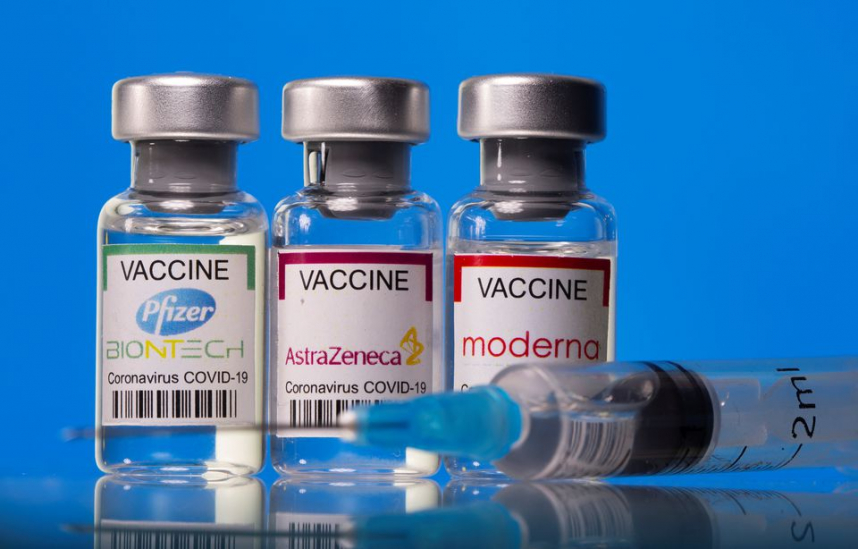
A major British study into mixing COVID-19 vaccines has found that people had a better immune response when they received the first dose of AstraZeneca or Pfizer-BioNTech shots followed by Moderna nine weeks later, according to the results on Monday.
The findings supporting flexible dosing will offer some hope to poor and middle-income countries which may need to combine different brands between first and second shots if supplies run low or become unstable.
If the AstraZeneca-Oxford vaccine is followed by a Moderna or Novavax shot, higher antibodies and T-cell responses were induced versus two doses of AstraZeneca-Oxford, according to researchers at the University of Oxford.
The study of 1,070 volunteers also found that a dose of the Pfizer-BioNTech vaccine followed by a Moderna shot was better than two doses of the standard Pfizer-BioNTech course.
Pfizer-BioNTech followed by Novavax induced higher antibodies than the two-dose Oxford-AstraZeneca schedule, although this schedule induced lower antibody and T-cell responses than the two-dose Pfizer-BioNTech schedule.
No safety concerns were raised, according to the Oxford University study published in the Lancet medical journal.
Many countries have been deploying a mix and match well before robust data was available as nations were faced with soaring infection numbers, low supplies, and slow immunization over some safety concerns.
The longevity of protection offered by vaccines has been under scrutiny, with booster doses being considered as well amid surging cases. New variants, including Delta and Omicron, have now increased the pressure to speed up vaccination campaigns.